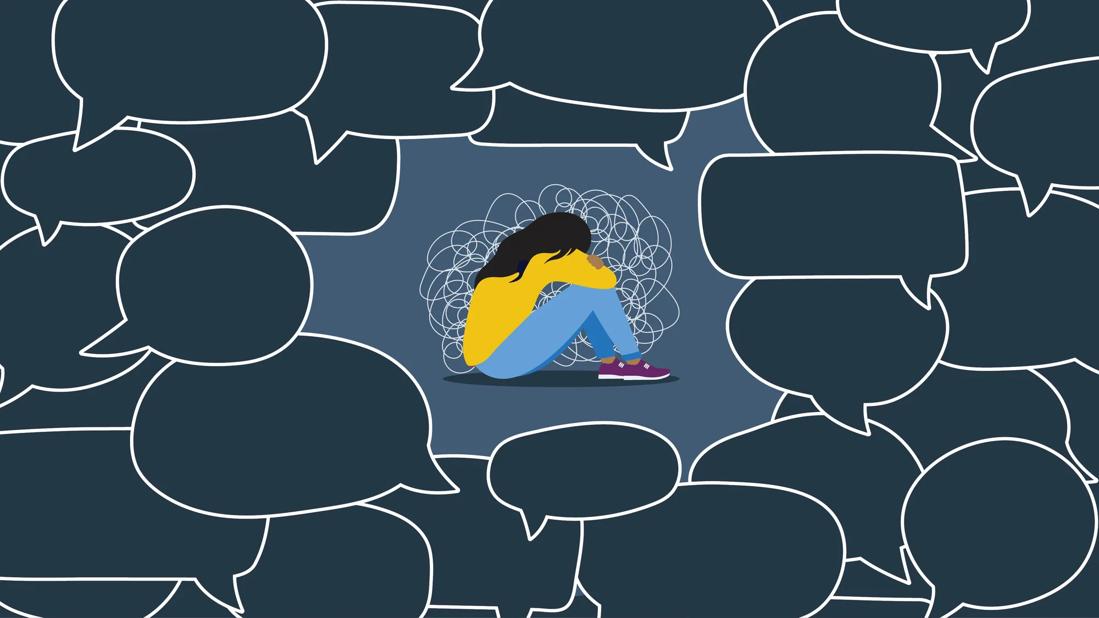This 15-question quiz is designed to help you recognize signs of gaslighting tactics and behaviors

Image content: This image is available to view online.
View image online (https://assets.clevelandclinic.org/transform/c5b1b020-c709-4b12-891f-a7fc2a9aef90/gaslighting-1301653190)
Person sitting with head on knees, with conversation bubbles all around
Gaslighting can make you feel confused, insecure, out of place, afraid to speak up and defend yourself, or communicate and express your frustrations with confidence. Over time, gaslighting can take a real toll on your mental, emotional and physical health. It can even disrupt your relationship with trust.
Advertisement
Cleveland Clinic is a non-profit academic medical center. Advertising on our site helps support our mission. We do not endorse non-Cleveland Clinic products or services. Policy
But how do you know if you’re being gaslighted if you’re having doubts about your own reality?
According to psychologist Chivonna Childs, PhD, manipulative behaviors associated with gaslighting can be damaging to anyone for a number of reasons. But for these tactics to be considered gaslighting, they usually occur repeatedly over extended periods of time and often in combination with multiple gaslighting behaviors.
This quiz takes all of that into consideration by asking you how you feel regarding the person you think may be gaslighting you:
This assessment will not provide a mental health diagnosis of any kind. This test is designed for personal use only and is meant to be a tool that can help you determine whether or not your concerns about gaslighting require further action.
In this quiz, we focus on using declarative statements in place of questions so you can assess and reflect on your own unique situations with other people. Statements like, “I am made to feel responsible for this person’s negative behavior toward me,” are provided so you can rank how little or often those statements apply to you.
Based on your responses, you’ll get one of three potential results:
Advertisement
This gaslighting quiz is designed for anyone who’s questioning the nature of their relationship with a coworker, romantic partner, family member, friend or other acquaintance who you think may be gaslighting you. The goal of this quiz is to help you reflect on the ways others may have negatively impacted you and your mental or emotional health over any period of time.
Remember that gaslighting of any kind is never your fault. You are not to blame for the behaviors that occur in a gaslit relationship.
That’s what makes gaslighting so difficult to wrap your head around — it’s hard for the target to really see that it’s happening and to truly believe that they’re not in the wrong.
If at any point you’re concerned for your health and safety or the safety of others, you may want to reach out to a therapist, mental health specialist or other healthcare provider for guidance. These professionals can help you recognize the signs of gaslighting, while also helping you heal the wounds caused by gaslighting behaviors.
Advertisement

Sign up for our Health Essentials emails for expert guidance on nutrition, fitness, sleep, skin care and more.
Learn more about our editorial process.
Advertisement
Communicating clear limits helps protect your time, energy and emotional well-being
Being hooked on love can cause unhealthy relationship patterns and obsessive thoughts
When someone guilt trips you, they’re using emotionally manipulative behavior to try to get you to act a certain way
This behavior is usually a sign that the other person doesn’t know how to handle conflict or is prone to being passive-aggressive
It can be harder to let go when you’ve invested time, energy and emotions — but it might be the healthier choice long term
Attachment theory suggests that your earliest relationships shape connections throughout your life
Love languages are defined by the way you prefer to give and receive affection
There are many different ways to love someone and yourself
Prioritize your health by managing stress, strengthening your social connections and getting quality sleep
Bolsters, blankets, pillows and blocks can offer extra support, stability and comfort
Allergies, postnasal drip, asthma or reflux could be to blame for a cough that won’t quit